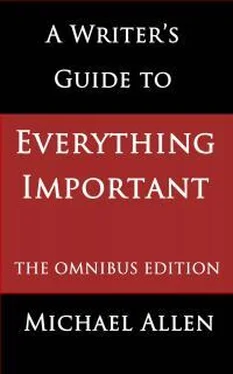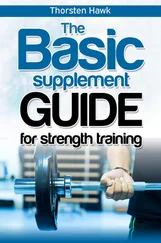Split infinitives. As far as I’m concerned, you can split infinitives with impunity if it makes your meaning clearer. In other words, if you want to boldly go where no one has ever gone before, that’s OK by me. But beware; some readers may think you’re doing it out of ignorance.
The use of that or which is a tougher problem. Suppose we write: The government approved a law that will give free candy to all children under ten. Is the word that correct in that sentence, or would which be better? My view is that the choice is not so much between that and which as between that and comma-which. In other words, if you don’t need a comma before the word, then that is OK. If you do need a comma, which is the right choice. To demonstrate the point consider the following example: The consumption of chocolate, which some people consider unhealthy for children, rose again last year.
I prefer learnt and spelt because that’s the way I think the words should sound.
The -ize and -ise question. My choice is to end all eyes words in -ise and have done with it, but -ize has the support of the Oxford English dictionaries, which I normally accept as authoritative. (My preference, should anyone care, is aesthetic rather than etymological: I like the look of the soft round s better than that nasty angular z. )
Be your own prodnose
When it comes to spelling and points of grammar, those writers who are working for a major newspaper have the advantage over us ordinary mortals. The full-time journalists know that they have some back-up available to them in the form of sub-editors.
On major newspapers there is (or used to be) someone whose job it is to tidy up the careless errors of grammar and punctuation, and nothing else. Nowadays this person is known as the revise editor, or something similar, but years ago he was called the prodnose – presumably because his job was to prod his nose into all the copy going into the paper, and to check for mistakes in style and usage.
An article in The Times recently illustrated how useful such a revise editor can be. One of that paper’s most distinguished correspondents admitted that in drafting a recent column he had misspelt Mother Teresa (by including an h), Margaret Atwood (with an unnecessary second t in the surname), J.M. Coetzee (with an s), and Gutenberg (with two u’s). All of these errors, if left in, would have attracted criticism from readers who care about accuracy.
The article made the point that, even on The Times , correct usage is definitely a problem. For one thing, journalists work at speed; more importantly, ‘there are now two generations of journalists who were not taught any formal grammar at school.’ In other words even the leading UK newspaper is feeling the effects of our pathetic education system.
So, you have to be your own prodnose. But how do you do that?
Answer, by buying yourself a decent set of reference books. See section 11, below.
7. Answers to the tests
Spelling
In section 6 I set you a modest spelling test. The correct versions of ten of the words are set out below; the other ten are correct as printed.
acquire, not aquire
aggressive, not agressive
benefited, not benefitted
consensus, not concensus
desperate, not desparate
detached, not detatched
memento, not momento
necessary, not neccessary
separate, not seperate
supersede, not supercede
Yes, I do know that some sensible people argue for a double t in benefited; but not I.
Grammar and punctuation
1. The first sentence provides an example of what is technically an unattached, or dangling, participle. The motorcade did not inspect the guard of honour; President Reagan did.
2. Here we have two sentences separated by a comma. Ideally there should be a semi-colon after Wiltshire, but a full stop would do. Also, the first its should be it’s and the second it’s should be its.
3. She was the older of two sisters. If there had been three sisters, she might have been the oldest. In talking about persons who are closely related, elder and eldest are often used rather than older and oldest.
4. Between you and me, not I. This is a common error, but often debated; see the discussion in Fowler’s Modern English Usage . Also, I would have told him so; not would of. Half the British population seems to use ‘of’ in everyday speech.
5. The general sense of the sentence implies that the coach effected a considerable improvement. He might have affected a lack of dismay when the team lost, i.e. he might have pretended not to care. Teams requires an apostrophe before the s, unless he coached several teams successfully, in which case the apostrophe would go after the s.
8. Readability
There is one other aspect of your writing style which you might care to consider, and that is its readability. And it so happens that readability can be measured – after a fashion.
About thirty years ago I got to hear about something called the Gunning fog index, and I’ve used it occasionally ever since. Gunning, by the way, was an American businessman who invented the index in 1952; it has been modified somewhat since.
The fog index analyses a short sample of any given text and then produces a figure to indicate its readability. The figure quoted is said to represent the number of years of full-time education that are needed for a reader to understand the text on a first reading. So, for example, a fog index of 12 means that your prose can be read comfortably by the average American high-school senior. On the other hand, if you want to be understood by almost any English speaker, of whatever level of education, you’re going to need an index of 8 or below. If your readability figure is 24 or so, then you’re obviously far too clever for your own good. Either that or you will be understood only by people who have a PhD in your particular niche of academic research. And good luck with that.
Wikipedia will provide you with a concise and clear explanation of how to do the fog calculation manually, but fortunately there is a web site which does the job online. Just like that. Go to www.gunning-fog-index.com.
Just for fun, I used this web site to check two samples of text from this very book. The first sample gave an index of 12.67 and second 13.64; the average is 13.155. Since the figures after the decimal point give what is, in my view, an entirely spurious impression of accuracy, I would say that to read this book comfortably you will need a year or two of college.
I am entirely happy with that. It would be possible, with a huge effort and a large commitment of time, for me to go through the whole book and simplify it, chiefly by using shorter sentences and by using fewer multisyllabic words. But I don’t intend to try.
However… This book is non-fiction. Its primary purpose is to convey information. A work of fiction, on the other hand, seeks to create emotion in the reader. So again, just for fun, I have tested a few paragraphs of text from a short story of mine (one which will, incidentally, be reproduced at the end of this book). Results: 11.83 and 8.24, average 10.
This second test demonstrates two useful points. One is that my fiction style is easier to read than my non-fiction style. And the second is that two samples from a lengthy text can give different results; consequently, taking ten samples and averaging the figures would give a more reliable indication than just one sample.
Once again, I am happy with my fiction readability index. If I was consciously writing for a readership with a relatively low IQ, and/or too old to have received much education, then I would need to change my style considerably. But I’m not, so that’s OK. A fog index of 10 suggests to me that my fiction can be read by any reasonably bright person who stays at school for a year or two after the minimum leaving age.
Читать дальше












